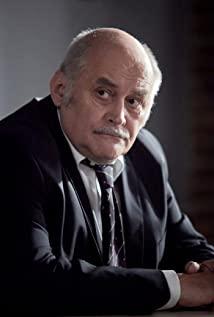"Love is not a five-minute moaning in bed every week. Love is rooted in the heart, not between the legs." A couple who will face a major trial in their marriage as they hug each other in bed, the wife tells her husband the above words. She said she wanted to be with him all her life. That's a dialogue from an elite police officer in the "Ninth Commandment".
In the ninth commandment, Kieslowski would probably ask: Is there any pure love in the world? How far can the tolerance of love extend? Is love always pure and simple, or is there always something missing? In the story, Hanga said to Lomike: "What matters is what we have, not what we don't have." In the real world, can it really be practiced like this? If "spirit" and "desire" can be considered as binary separation, why is the trust between lovers so fragile and vulnerable? This is a myth and question that is deeply rooted in everyone's heart.
In Kieslowski's biography, there is a story about the "Ten Commandments": one day, on the streets of Berlin, a fifty-year-old lady recognized him, took his hand and cried It turned out that although she and her daughter lived together, they were strangers for five or six years. Later, the mother and daughter watched the TV series "The Ten Commandments" together. After watching it, the daughter suddenly kissed her mother. This story, Kieslowski said: "Just for this kiss, for this woman, making that movie is worth it." Not for fame and fortune, but this is what Kieslowski cherishes. Of, he said: "I don't shoot metaphors. Metaphors are for people to read. It's good stuff. I always try to stir people up and make them want to do something, whether it's pulling them into a story, Or give them inspiration to analyze the story. What matters is that I can force them to do something, or move them in a particular way. That's what I do: to get people to experience something, no matter what. It doesn't matter if you experience it intellectually or emotionally. You make a movie to give people something, to take them to another place, whether that world is intuitive or intellectual, that's fine." Chieslow Kieslowski's belief in making movies is also one of the reasons why I adore Kieslowski.
View more about Dekalog reviews











